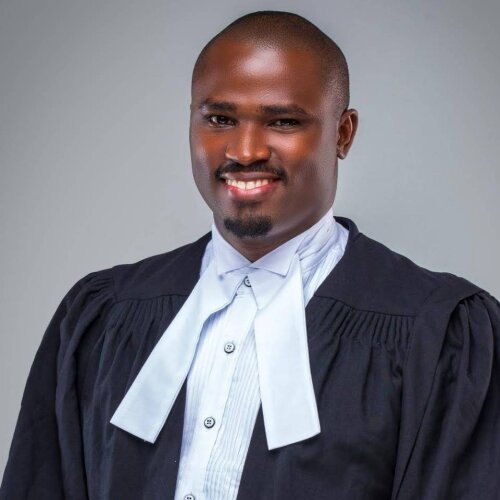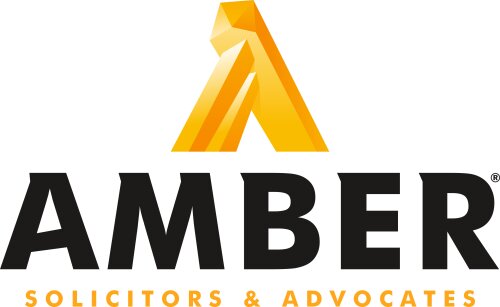Best Communications & Media Law Lawyers in Uganda
Share your needs with us, get contacted by law firms.
Free. Takes 2 min.
Or refine your search by selecting a city:
List of the best lawyers in Uganda
About Communications & Media Law in Uganda
Communications and Media Law in Uganda encompasses regulations and legal frameworks that govern how information is disseminated and communicated through various media platforms including newspapers, radio, television, and digital media. This field of law deals with issues such as censorship, freedom of speech, internet regulation, intellectual property rights, and the licensing and operation of media entities. In Uganda, this legal area is predominantly guided by the Uganda Communications Act and other related statutes, ensuring that media operations align with national standards and ethical practices.
Why You May Need a Lawyer
There are several scenarios where individuals or organizations may require legal assistance in Communications & Media Law in Uganda:
- To navigate media licensing requirements or disputes with the Uganda Communications Commission (UCC).
- For defense or advice in cases related to defamation or slander.
- In situations involving censorship or freedom of speech violations.
- To resolve issues concerning intellectual property and copyright infringement.
- When dealing with regulatory compliance issues in digital advertising or social media.
- For guidance in contractual matters regarding media content production and distribution.
Local Laws Overview
The key legal frameworks affecting Communications & Media Law in Uganda include:
- The Uganda Communications Act: Governs and regulates communications services, facilitates the development of a modern communications sector, and ensures efficient and reliable service delivery.
- The Access to Information Act: Provides for the right to access information in possession of the state or any public body unless restricted by law.
- The Press and Journalist Act: Regulates the conduct and licensing of journalists, ensuring ethical and professional standards in news reporting and dissemination.
- The Penal Code Act: Contains provisions relating to communication offenses such as libel and the dissemination of false information.
Frequently Asked Questions
What is the role of the Uganda Communications Commission?
The Uganda Communications Commission (UCC) is a regulatory body responsible for licensing, regulating, and promoting communications services in Uganda, ensuring equitable access to quality communications services throughout the country.
How can I legally protect my intellectual property in the media sector?
To protect intellectual property in Uganda, you should register copyrights, trademarks, or patents with the Uganda Registration Services Bureau (URSB), ensuring legal ownership and the right to protect your work against infringement.
What are the legal consequences of defamation in Uganda?
Defamation is considered a civil wrong in Uganda. If found liable, a person may be required to pay damages, apologize, or retract the defamatory statements. Criminal liability may also be imposed under certain circumstances.
How does the law in Uganda address online censorship?
Online content is regulated under various laws, including the Computer Misuse Act, which curtails unlawful access, publication of offensive content, and other cybercrimes. Enforcement involves content removal or blocking of harmful information.
Are there specific laws regarding digital advertising in Uganda?
Yes, digital advertising is subject to regulations that ensure truthfulness and fairness, and compliance with consumer protection laws overseen by the Uganda Communications Commission and other relevant authorities.
What should journalists do to comply with the Press and Journalist Act?
Journalists in Uganda must register with the Media Council and adhere to the professional code of conduct outlined in the Press and Journalist Act to ensure ethical reporting and journalistic integrity.
Is freedom of speech fully protected under Ugandan law?
While the Ugandan Constitution guarantees freedom of speech, certain limitations are imposed to prevent speech that incites violence, promotes hate, or undermines public order and morality.
What is required to obtain a media license in Uganda?
Applicants for a media license must submit required documents to the Uganda Communications Commission, which includes proof of incorporation, business plans, and adherence to technical and regulatory standards.
How are broadcast frequencies regulated?
Broadcast frequencies are regulated by the Uganda Communications Commission, which oversees spectrum allocation and ensures efficient and non-interfering use of the radio and television bandwidths.
Can foreign media operate in Uganda?
Yes, foreign media can operate in Uganda but must comply with local regulatory frameworks and obtain relevant licenses from the Uganda Communications Commission.
Additional Resources
Several resources and organizations can offer guidance and support related to Communications & Media Law in Uganda:
- Uganda Communications Commission (UCC): The main regulatory body for communications and media services.
- Uganda Registration Services Bureau (URSB): Responsible for the registration of copyrights, patents, and trademarks.
- Media Council of Uganda: A regulatory agency overseeing the conduct of journalists and media houses.
- Uganda Law Society: Provides legal directories and can recommend experienced lawyers in Communications & Media Law.
Next Steps
If you require legal assistance in Communications & Media Law in Uganda, follow these steps:
- Identify the specific area of Communication & Media Law relevant to your issue.
- Seek consultation from a qualified lawyer specializing in Communications & Media Law through the Uganda Law Society or private legal firms.
- Gather all relevant documents and evidence related to your situation prior to your legal consultation.
- Follow legal advice diligently and keep informed about changes in laws and regulations affecting your case.
Lawzana helps you find the best lawyers and law firms in Uganda through a curated and pre-screened list of qualified legal professionals. Our platform offers rankings and detailed profiles of attorneys and law firms, allowing you to compare based on practice areas, including Communications & Media Law, experience, and client feedback.
Each profile includes a description of the firm's areas of practice, client reviews, team members and partners, year of establishment, spoken languages, office locations, contact information, social media presence, and any published articles or resources. Most firms on our platform speak English and are experienced in both local and international legal matters.
Get a quote from top-rated law firms in Uganda — quickly, securely, and without unnecessary hassle.
Disclaimer:
The information provided on this page is for general informational purposes only and does not constitute legal advice. While we strive to ensure the accuracy and relevance of the content, legal information may change over time, and interpretations of the law can vary. You should always consult with a qualified legal professional for advice specific to your situation.
We disclaim all liability for actions taken or not taken based on the content of this page. If you believe any information is incorrect or outdated, please contact us, and we will review and update it where appropriate.
Browse communications & media law law firms by city in Uganda
Refine your search by selecting a city.














